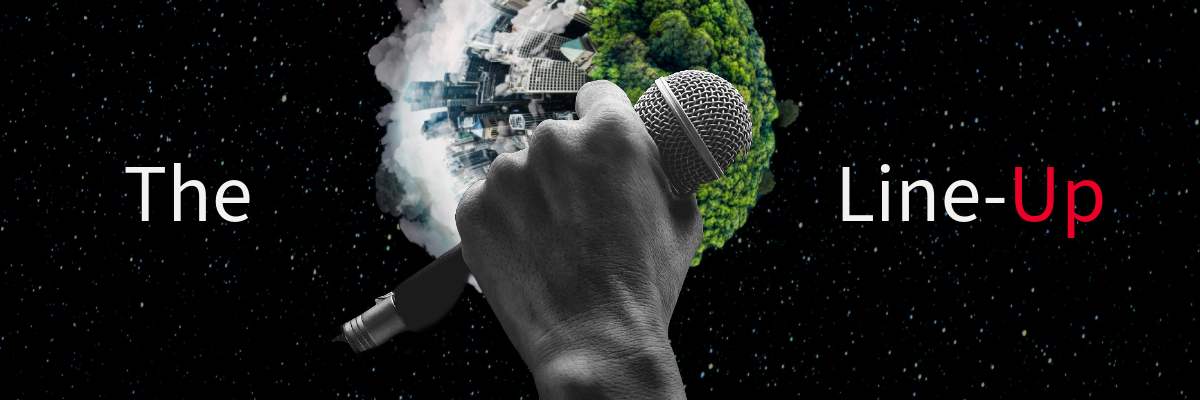Take a look at this year’s speakers!
We’ll add more as they are announced
↓
-
How Technology and Human Adaptability Shape the Future.
Bio: Anthony Fumen Yawa is a dynamic innovator with a Bachelor’s in Aeronautical Engineering and a Master’s in Data Science. He co-founded Soraflake, an early stage startup creating engaging games for seniors to enhance cognitive health, and serves as Director of Research & Data Analytics at The Rethink Initiative, an NGO providing care solutions for diabetics. A Venture Pitch 2023 winner at the University of Chester, Anthony is passionate about leveraging technology for real-world impact. His work includes AI-driven innovations, such as a real-time hand gesture-to-language converter, demonstrating his commitment to cutting-edge solutions and societal transformation.
-
Empowering Communities: A Path to Adaptation, Inclusion, and Sustainable Futures
Bio: Anthony is a Public Health Scientist who is passionate about fair distribution of power to give everyone a chance to be well, supported, and actively involved in making healthy lifestyle and environmental choices for a sustainable future.
-
Is positive action an effective tool to address inequalities in challenging times?
Bio: After graduating with a Law degree from Oxford University, Chantal Davies qualified as a solicitor with Eversheds in Cardiff specialising in Employment, Human Rights and Discrimination Law. In 1998, she moved to work as a solicitor for the Equal Opportunities Commission (EOC) in Manchester heading up a Department tackling strategic and wider enforcement of the gender equality legislation. Chantal is now professor of Law, Equality and Diversity in the School of Law at the University of Chester. She has also developed and is Director of the Forum for Research into Equality and Diversity. Past research focuses on the experiences of minority ethnic students within HE and the use of positive action by organisations in the UK. Chantal has also completed a funded project looking at the gendered obstacles to research activity faced by academics in the UK. More recently Chantal has been funded by the Young Women’s Trust and the Equality and Human Rights Commission to research the use of positive action in apprenticeships. Chantal has also worked with the Higher Education Authority in Ireland to roll out a ground breaking positive action initiative aimed at increasing female representation within professorships. She has sat on the board of Cheshire Halton and Warrington Race and Equality Centre and the Equality Challenge Unit and in this latter role worked with them to develop institutional confidence in developing positive action initiatives within higher education. Chantal also sat on the review panel for the national Subject Benchmark Statement for Law. Chantal currently sits on the Sustainable and Inclusive Growth Commission and is also co-vice chair of the Law Society’s Women’s Law Division Committee. She has also recently been appointed to sit on AdvanceHE’s Equality Diversity and Inclusion Committee.
-
Forget What You Think You Know: 4 Lessons on Sustainable Edu-Practice Across Global Lines
Bio: Chiedza Ikpeh is a Zimbabwean-born education activist dedicated to driving meaningful change across the education landscape and beyond. With a rich academic background spanning Psychology and Human Resource Management, she is currently the Director of the RARA Education Project, an Equity, Diversity, and Inclusion (EDI) Consultant, a podcast host, a Doctoral Researcher, and a Multi-Academy Trustee Director. Combined with her doctoral research, expertise, experience, and passion, Chiedza's talk will delve into the intricate dynamics surrounding the visibility and representation of ethnically minoritised individuals or groups, in the workplace and wider society.
-
From Passive Consumers to Active Changemakers: Rethinking Our Relationship with Products
Bio: Matt is a product designer specializing in user-centered and sustainability-focused design for early-stage hardware innovators. With experience in both consumer and medical sectors, he has worked on products ranging from inhalers and medical pagers to pressure cookers and even a Quidditch goal. In 2024, he founded People Planet Product to bridge the gap between early-stage innovation and technical product development. Passionate about responsible design, Matt helps innovators embed sustainable practices into their projects, ensuring they create products that people want while aligning with the needs of the planet.
-
Build Back Together: Connecting the dots between adaptation, inclusion and empowerment
Namrata Bhattacharya Mis is an Associate Professor (Disaster Risk and Resilience) in Geography and Environment in the Faculty of Social Science at University of Chester. She is a geographer by training and passionate about understanding the connectivity's between nature and society in the context of disaster management. She is actively involved in multidisciplinary research related to understanding and managing water extremes and socio-economic vulnerabilities, particularly in flood risk management. Her teaching experience spans across Geography, International Development Studies, and Natural Hazard Management, with a recent focus on using innovative technologies to enhance inclusion in disaster management. Namrata is also the Co-Chair of university Race Equality And Cultural Heritage Group and she works constantly towards enhancing equality and diversity in HE.
-
Inconsistent Views of an Emerging Threat to Sustainable Futures: Critical Insights into Brownfields
Bio: Olalekan Aduloju is an Assistant Professor in the Department of Urban and Regional Planning at the University of Ilorin, Nigeria. He is also a doctoral student and a visiting lecturer at the Department of Geography and Environment at the University of Chester, United Kingdom. He is a recipient of a Commonwealth scholarship and research grant. His research interests straddle urban planning and spatiotemporal dynamics of cities, urban political ecology, and environmental heal.
-
A Positive Vision for Regenerative Leadership
Bio: Simon is a senior commercial strategy and sustainability specialist with extensive board-level experience and strong communication skills. An independent consultant, board advisor, and coach, they have a proven track record of driving measurable impact, improved performance, and entrepreneurial success across diverse sectors and geographies. An Honorary Professor at the University of Edinburgh Business School, they have served on governance boards and advisory panels, including Chatham House and the Yorkshire and Humber Climate Commission. With leadership experience across the private, public, and third sectors, they have a particular focus on regenerative leadership and fostering sustainable, long-term business strategies.
-
How to make friends and influence people - the role of travel behaviour change in our decarbonised transport future
Bio: Rose has worked around the world on complex mega-projects, including the Olympics and Commonwealth Games, organizing transport and movement as part of a consultancy. Now in Local Authority, she leads teams delivering on Net Zero climate ambitions, strategic transport planning, walking and cycling priorities, transport infrastructure, highways, structures, flooding, and local bus and rail services. With a passion for sustainability and efficiency, her work focuses on connecting people to places as seamlessly and safely as possible.















